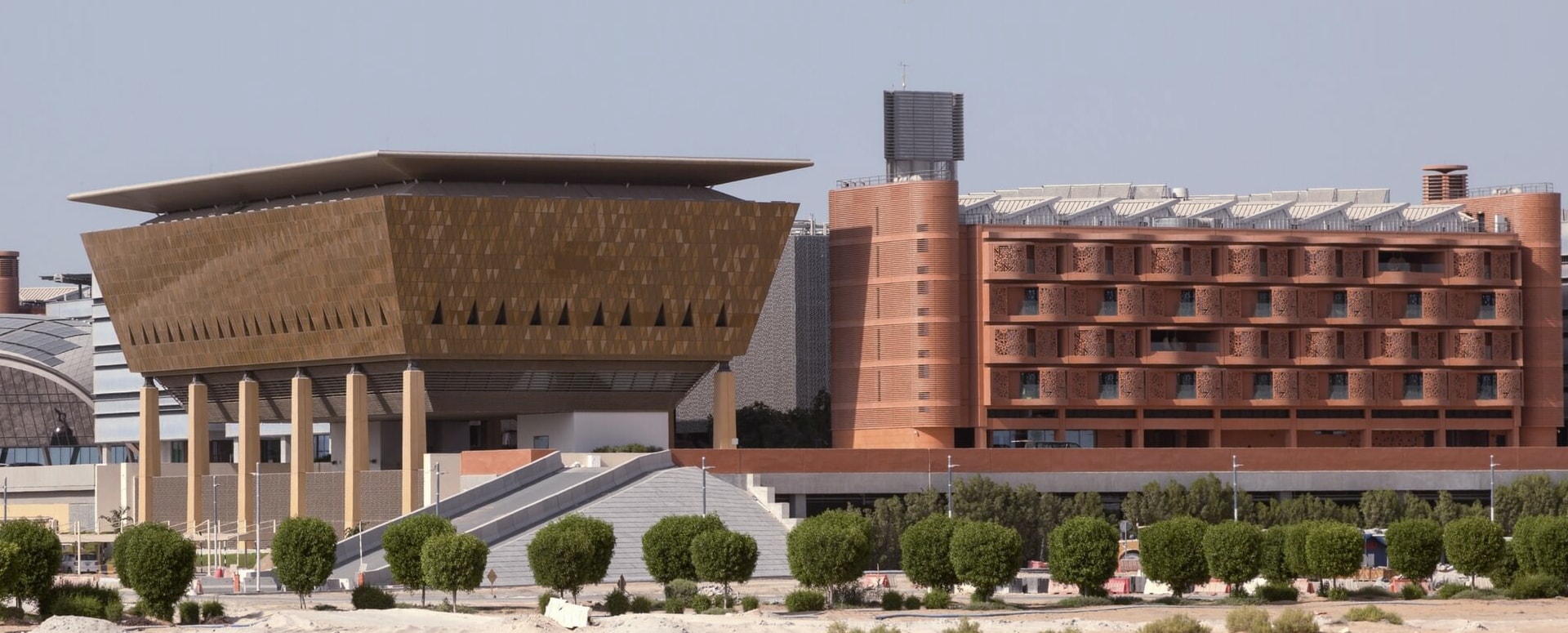
Masdar Institute of Science and Technology
Master of Science in Electrical Power Engineering
Electrical power engineering (EPE) is an important and vital discipline for widespread integration of renewable and sustainable technologies. The Masdar Institute Electrical Power Engineering Program covers a broad range of activities and evolving issues that are of great importance in the field of sustainable and smart power systems. Electrical power engineering covers subjects related to integration of renewable energy to power systems, power electronics applications and experimental design, power system stability and control, dynamic systems, control and optimization techniques in power systems. The program has been designed to provide students with technical knowledge in the area of power systems, in addition to mathematical tools that are necessary for developing new innovative solutions.
The mission of the Electrical Power Engineering Program at Masdar Institute is to provide students with the fundamental knowledge, skills, and professional experience necessary for successful careers in industrial or academic roles that involve alternative energy and sustainable technologies.
Graduates of the Electrical Power Engineering Program will be able to work collaboratively, conduct independent and multidisciplinary research, communicate effectively and recognize their role in solving global challenges, while simultaneously promoting sustainable engineering principles.
Program Goals
The Electrical Power Engineering Program aspires to produce post-graduate students with the disciplinary preparation that meets the following goals:
- An ability to identify and address current and future electrical engineering problems related to energy sources, generation, conversion, transmission, utilization, efficiency, protection, and control, within a broader framework of sustainable development;
- An ability to apply a multi-disciplinary approach to conceive, plan, design, and implement solutions to electrical engineering problems in the field of energy and sustainability;
- An understanding of the impact of solutions to energy problems in a global, economic, environmental, and societal context; and
- An understanding of the value of technical and scientific research, service to society, leadership and life-long learning required to further their career aspirations.
- Successfully apply advanced concepts of fundamental sciences and engineering to identify, formulate and solve complex electrical power engineering problems;
- Successfully apply advanced concepts of electrical power engineering to the analysis, design and development of electric systems, components, equipment or applications to meet desired needs of society professionally and ethically;
- Use advanced techniques, skills, and modern scientific and engineering software tools for professional practice;
- Successfully apply advanced concepts of electrical and power electronics engineering to design and develop electric/electronic hardware systems for effective renewable energy conversion, control and power delivery;
- Use an advanced approach to design and conduct experiments, and to analyze and interpret data; and
- Communicate effectively in written and oral form, both, individually and as a member of a multidisciplinary team, and thus to put forward the scientific findings at national and international levels successfully.
